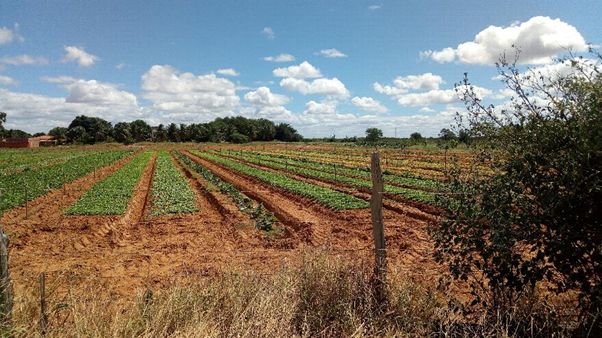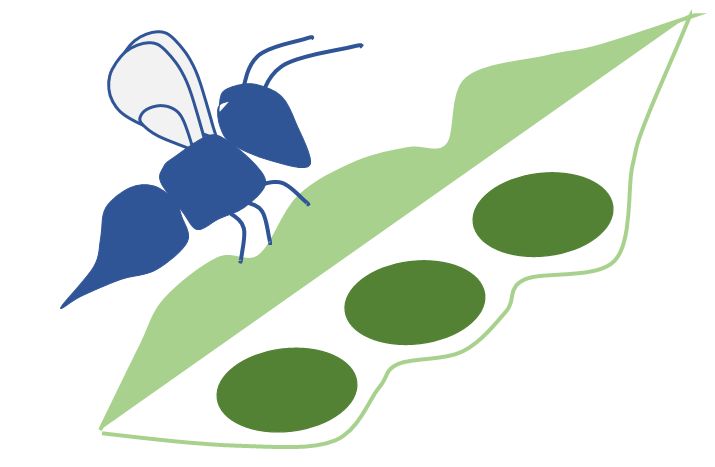
Fruit farming in the Brazilian caatinga. Picture by Patricia Rebouças.
An international consortium of researchers, led by the University of East Anglia in the UK, has been funded to work on enhancing the sustainability of fruit production in the highly biodiverse semi-arid caatinga, in Brazil. The three-year project is called Sustainable Fruit farming In the CAatinga: managing ecosystem service trade-offs as agriculture intensifies (SUFICA). It brings together agro-ecology researchers from the UK, Brazil and Chile.
The goal of SUFICA is to enhance the competitiveness, sustainability and long-term resilience of fruit farming in the São Francisco Valley in Brazil as it intensifies, through cutting edge research on agricultural ecosystem services and biodiversity. The project will co-design and test nature-based innovations on intensive fruit farms, which generate multiple environmental benefits whilst enhancing profitability of farm through improved yield or quality and reduced inputs.
SUFICA involves the entire supply chain, from farmers in Brazil, through international fruit supply companies, to a UK supermarket (Waitrose) and a global partnership of agri-food companies developing a biodiversity metric for supply chains (Cool Farm Alliance). The collaboration is a response to strong market signals in the agri-food sector that farmers should take action to support biodiversity. The research links this biodiversity objective with production-enhancing ecosystem services – pollination, carbon storage and water flow regulation - to assess the potential for management that benefits both biodiversity and production. The approach, termed 'ecological intensification', has shown promise in Europe and North America, but has not been experimentally tested in tropical semi-arid environments.
The project is scientifically ground-breaking. It tests ecological intensification using a replicated Before-After-Control-Impact experimental design, codeveloped with the farming community in a specific landscape, to generate long-lasting impact.
SUFICA establishes the necessary research infrastructure and tools to monitor and continually improve biodiversity and ecosystem services on farms in the São Francisco valley, and demonstrates how a partnership approach enables the benefits of agricultural growth and environmental protection to be combined.
Funders:
- The Newton Fund (UK)
- CONICYT (Chile)
Partners:
- University of East Anglia, UK
- Pontifical Catholic University of Chile
- Federal University of São Francisco Valley (UNIVASF), Brazil
- Bahía State University (UNEB), Brazil
- Federal University of Sergipe, Brazil
- Embrapa Brazilian Agricultural Research Corporation, Brazil
- Primafruit Ltd, UK
- Cool Farm Alliance, UK
- Agropecuaria Labrunier Ltda, Brazil



